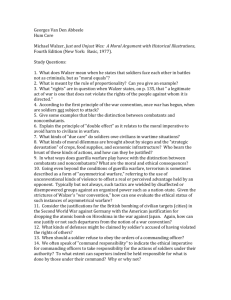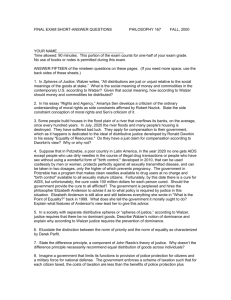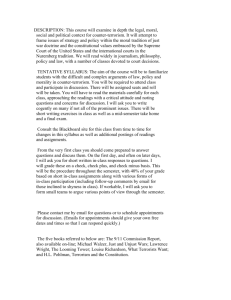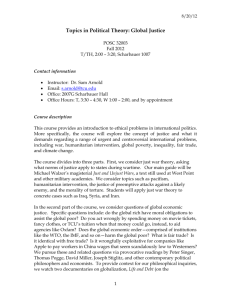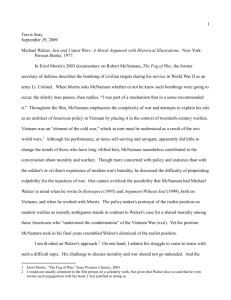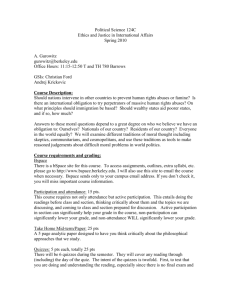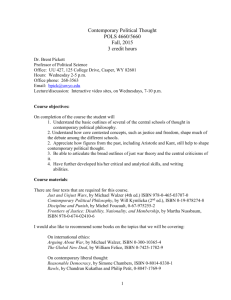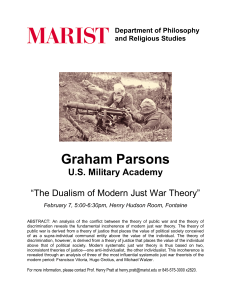Reading/Discussion Questions for December 3 17.042 Citizenship and Pluralism O’Brien, pp. 268-308
advertisement
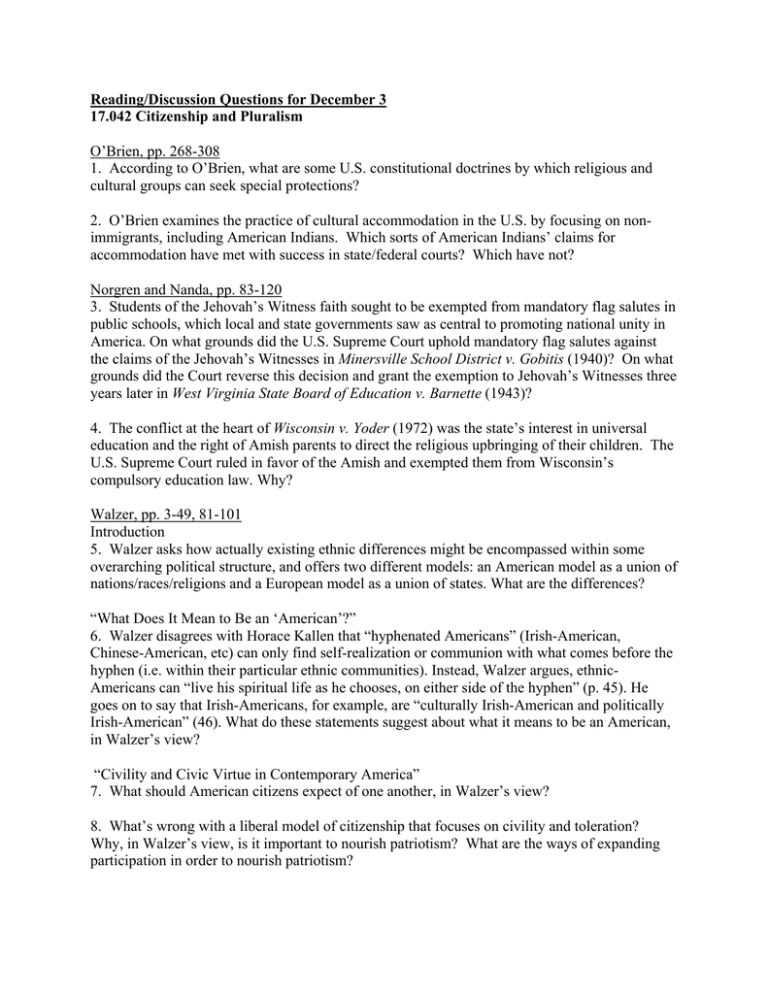
Reading/Discussion Questions for December 3 17.042 Citizenship and Pluralism O’Brien, pp. 268-308 1. According to O’Brien, what are some U.S. constitutional doctrines by which religious and cultural groups can seek special protections? 2. O’Brien examines the practice of cultural accommodation in the U.S. by focusing on nonimmigrants, including American Indians. Which sorts of American Indians’ claims for accommodation have met with success in state/federal courts? Which have not? Norgren and Nanda, pp. 83-120 3. Students of the Jehovah’s Witness faith sought to be exempted from mandatory flag salutes in public schools, which local and state governments saw as central to promoting national unity in America. On what grounds did the U.S. Supreme Court uphold mandatory flag salutes against the claims of the Jehovah’s Witnesses in Minersville School District v. Gobitis (1940)? On what grounds did the Court reverse this decision and grant the exemption to Jehovah’s Witnesses three years later in West Virginia State Board of Education v. Barnette (1943)? 4. The conflict at the heart of Wisconsin v. Yoder (1972) was the state’s interest in universal education and the right of Amish parents to direct the religious upbringing of their children. The U.S. Supreme Court ruled in favor of the Amish and exempted them from Wisconsin’s compulsory education law. Why? Walzer, pp. 3-49, 81-101 Introduction 5. Walzer asks how actually existing ethnic differences might be encompassed within some overarching political structure, and offers two different models: an American model as a union of nations/races/religions and a European model as a union of states. What are the differences? “What Does It Mean to Be an ‘American’?” 6. Walzer disagrees with Horace Kallen that “hyphenated Americans” (Irish-American, Chinese-American, etc) can only find self-realization or communion with what comes before the hyphen (i.e. within their particular ethnic communities). Instead, Walzer argues, ethnicAmericans can “live his spiritual life as he chooses, on either side of the hyphen” (p. 45). He goes on to say that Irish-Americans, for example, are “culturally Irish-American and politically Irish-American” (46). What do these statements suggest about what it means to be an American, in Walzer’s view? “Civility and Civic Virtue in Contemporary America” 7. What should American citizens expect of one another, in Walzer’s view? 8. What’s wrong with a liberal model of citizenship that focuses on civility and toleration? Why, in Walzer’s view, is it important to nourish patriotism? What are the ways of expanding participation in order to nourish patriotism?
